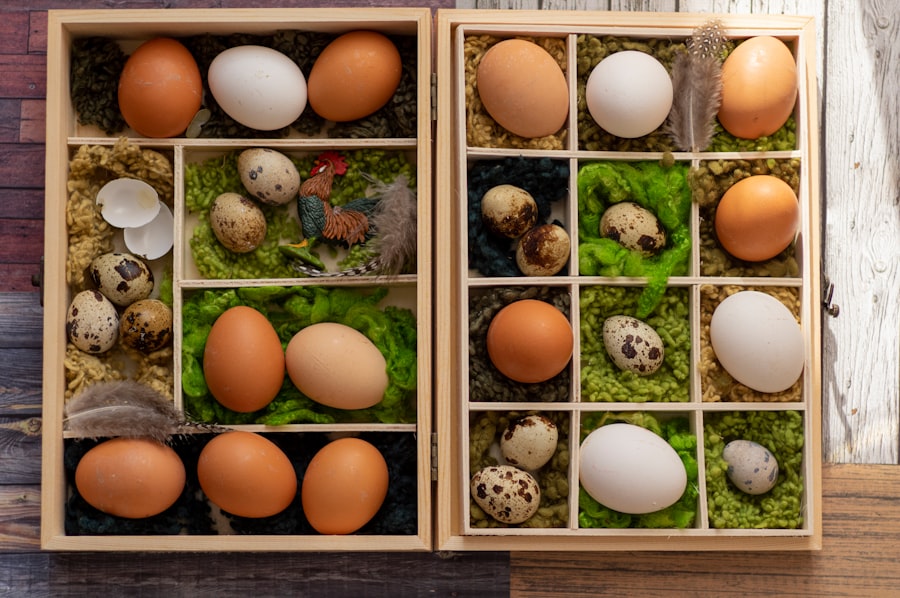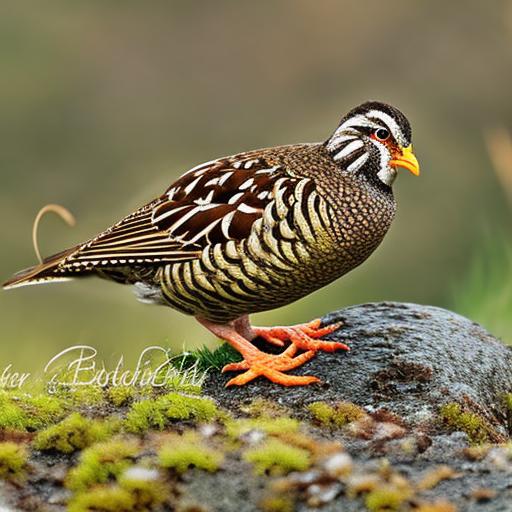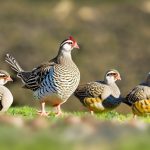Quail farming has gained popularity in New Zealand due to the increasing demand for quail eggs and meat. Quails are small, hardy birds that are relatively easy to care for, making them an ideal choice for both commercial and backyard farming. They are known for their fast growth, high egg production, and low feed consumption, making them a cost-effective option for farmers. Quails are also well-suited to the New Zealand climate, making them a viable option for farmers across the country.
Quail farming in New Zealand offers a range of benefits, including a quick return on investment, low maintenance costs, and the ability to produce high-quality eggs and meat. Quails are also known for their adaptability to different environments, making them suitable for both rural and urban settings. With the right knowledge and resources, quail farming can be a profitable venture for farmers in New Zealand. In this article, we will explore the key considerations for keeping quails in New Zealand, including choosing the right breed, housing and enclosure requirements, feeding and nutrition, health and disease management, breeding and rearing, as well as legal and regulatory considerations.
Key Takeaways
- Quails are becoming increasingly popular for backyard farming in New Zealand due to their small size and low maintenance requirements.
- When choosing a quail breed, consider factors such as egg production, meat quality, and temperament to meet your specific needs and preferences.
- Quails require a secure and well-ventilated enclosure with adequate space for foraging and nesting, as well as protection from predators and the elements.
- A balanced diet for quails in New Zealand should include a mix of commercial feed, fresh greens, and occasional treats like mealworms or fruits.
- Regular health checks, proper sanitation, and vaccination are essential for preventing diseases and maintaining the overall well-being of quails.
Choosing the Right Quail Breed for Your Needs
When it comes to choosing the right quail breed for your needs in New Zealand, there are several factors to consider. The most common quail breeds raised in New Zealand include the Japanese quail (Coturnix japonica) and the Bobwhite quail (Colinus virginianus). Japanese quails are known for their high egg production, fast growth, and docile nature, making them a popular choice for commercial egg production. Bobwhite quails, on the other hand, are prized for their flavorful meat and are often raised for game bird hunting.
When selecting a quail breed, it’s important to consider your specific goals and resources. If you’re looking to start a commercial quail farm focused on egg production, Japanese quails may be the best option due to their high egg-laying capacity. However, if you’re interested in raising quails for meat production or hunting purposes, Bobwhite quails may be more suitable. Additionally, consider the climate and environment in your region, as some quail breeds may be better suited to certain conditions than others. Ultimately, the right quail breed for your needs will depend on your goals, resources, and local conditions.
Housing and Enclosure Requirements for Quails
Proper housing and enclosure are essential for the health and well-being of quails in New Zealand. When setting up a quail farm or backyard enclosure, it’s important to provide adequate space, protection from predators, and a clean environment for the birds. Quails can be housed in a variety of structures, including cages, aviaries, or coops, depending on the scale of your operation.
For commercial quail farms, large-scale cage systems are often used to maximize space and egg production. These cages should provide enough room for the quails to move around comfortably and access food and water. Additionally, the cages should be equipped with proper ventilation and lighting to ensure optimal conditions for the birds. For backyard quail farming, smaller enclosures such as aviaries or coops can be used to house a smaller number of birds. These enclosures should also provide adequate space and protection from predators, as well as easy access for cleaning and maintenance.
Regardless of the type of housing or enclosure used, it’s important to prioritize the safety and comfort of the quails. Ensure that the housing is secure from predators such as rats, cats, and birds of prey. Additionally, provide bedding material such as straw or wood shavings to keep the birds comfortable and maintain a clean environment. By meeting these housing and enclosure requirements, you can create a safe and healthy living space for your quails in New Zealand.
Feeding and Nutrition for Quails in New Zealand
Proper feeding and nutrition are essential for the health and productivity of quails in New Zealand. Quails are omnivorous birds that require a balanced diet to support their growth, egg production, and overall well-being. A high-quality commercial quail feed is readily available in New Zealand and is formulated to meet the nutritional needs of quails at different stages of development.
When feeding quails, it’s important to provide access to fresh water at all times, as well as a balanced diet that includes protein, carbohydrates, vitamins, and minerals. Commercial quail feed typically contains a mix of grains, seeds, and protein sources such as soybean meal or fish meal. Additionally, offering supplemental sources of calcium such as crushed oyster shells can help support strong eggshells in laying hens.
In addition to commercial feed, quails can also benefit from access to fresh greens, insects, and other natural foods. For backyard quail farming, providing access to a diverse range of foods can help supplement their diet and promote natural foraging behaviors. However, it’s important to avoid feeding quails foods that are toxic or harmful to their health.
By providing a balanced diet that meets their nutritional needs, you can ensure that your quails remain healthy and productive in New Zealand. Regularly monitor their feed intake and adjust their diet as needed based on their growth stage and production goals.
Health and Disease Management for Quails
Maintaining the health of your quails is crucial for the success of your farming operation in New Zealand. Like all animals, quails are susceptible to a range of diseases and health issues that can impact their well-being and productivity. To ensure the health of your quails, it’s important to implement proper disease management practices and monitor their condition regularly.
One of the key aspects of disease management for quails is maintaining a clean environment. Regularly clean and disinfect their housing and enclosure to minimize the risk of disease transmission. Additionally, practice good biosecurity measures to prevent the introduction of diseases from outside sources.
It’s also important to monitor the health of your quails closely and be vigilant for any signs of illness or distress. Common health issues in quails include respiratory infections, parasites, and nutritional deficiencies. If you notice any abnormal behavior or symptoms in your birds, consult with a veterinarian who has experience with poultry to diagnose and treat any potential health issues.
In addition to proactive disease management practices, vaccination can also be an effective way to protect your quails from certain diseases. Consult with a poultry veterinarian to determine if vaccination is recommended based on the specific risks in your region.
By implementing proper disease management practices and monitoring the health of your quails regularly, you can help ensure that they remain healthy and productive in New Zealand.
Breeding and Rearing Quails in New Zealand

Breeding and rearing quails can be a rewarding aspect of quail farming in New Zealand. Whether you’re interested in expanding your flock or producing new generations of birds for egg or meat production, understanding the breeding process is essential for success.
Quails reach sexual maturity at around 6-8 weeks of age, at which point they can begin mating and laying eggs. To encourage successful breeding, provide a suitable nesting area with soft bedding material where the female quails can lay their eggs. Once the eggs are laid, they can be collected for incubation or left with the hens to hatch naturally.
Incubating quail eggs is a common practice for commercial hatcheries and backyard breeders alike. Quail eggs typically take around 17-18 days to hatch when kept at the appropriate temperature and humidity levels. Using a reliable incubator with automatic turning capabilities can help ensure a successful hatch rate.
Once hatched, the young quails will require proper care and nutrition to support their growth and development. Provide them with a warm brooder area equipped with heat lamps or heating pads to maintain an optimal temperature. Additionally, offer them a high-quality starter feed formulated specifically for young quails.
By understanding the breeding process and providing proper care for young quails, you can successfully expand your flock and maintain a sustainable supply of eggs or meat in New Zealand.
Legal and Regulatory Considerations for Keeping Quails in New Zealand
Before starting a quail farming operation in New Zealand, it’s important to be aware of the legal and regulatory considerations that may apply to your venture. While keeping quails is generally straightforward compared to other livestock species such as chickens or pigs, there are still certain regulations that must be followed.
In New Zealand, there are regulations governing animal welfare standards, biosecurity measures, and food safety requirements that may apply to quail farming operations. It’s important to familiarize yourself with these regulations and ensure that your farming practices comply with all relevant laws.
Additionally, if you plan to sell quail eggs or meat commercially in New Zealand, you may need to obtain necessary permits or licenses from local authorities or regulatory agencies. These permits may include requirements related to food safety standards, labeling requirements, or traceability measures.
It’s also important to consider any local zoning regulations or land use restrictions that may apply to keeping quails on your property. Some areas may have specific rules regarding the number of birds allowed per acre or setbacks from neighboring properties.
By understanding and complying with the legal and regulatory considerations for keeping quails in New Zealand, you can ensure that your farming operation operates within the bounds of the law while maintaining high standards of animal welfare and food safety.
In conclusion, keeping quails in New Zealand offers a range of opportunities for both commercial farmers and backyard enthusiasts. By choosing the right breed for your needs, providing proper housing and nutrition, managing their health effectively, understanding breeding processes, and complying with legal regulations; you can establish a successful quail farming operation in New Zealand. With careful planning and attention to detail, quail farming can be a rewarding venture that provides high-quality eggs and meat while contributing to sustainable agriculture practices in New Zealand.
If you’re considering keeping quails in New Zealand, you might also be interested in learning about the ideal coop size for chickens. Poultry Wizard has a helpful article on how big a coop needs to be for chickens, which provides valuable insights into creating a comfortable living space for your feathered friends. Understanding the space requirements for poultry can also be beneficial when planning for your quail enclosure.
FAQs
What are quails?
Quails are small ground-dwelling birds that are often kept for their eggs and meat. They are known for their distinctive calls and are found in various parts of the world.
What do quails eat?
Quails are omnivorous and eat a variety of foods including seeds, insects, and small plants. In captivity, they can be fed a diet of commercial quail feed, supplemented with fresh greens and protein sources.
How are quails kept in New Zealand?
In New Zealand, quails are often kept in outdoor aviaries or pens with access to shelter and a secure area to roam. They require protection from predators and a clean, dry environment.
What are the benefits of keeping quails in New Zealand?
Keeping quails in New Zealand can provide a sustainable source of eggs and meat for personal consumption. They are also relatively low maintenance and can be kept in smaller spaces compared to other poultry.
Are there any regulations for keeping quails in New Zealand?
In New Zealand, there are regulations and guidelines for keeping quails, including requirements for housing, food, and welfare. It is important to familiarize oneself with these regulations before keeping quails.
What are some common health issues for quails in New Zealand?
Common health issues for quails in New Zealand include respiratory infections, parasites, and injuries from predators or other birds. It is important to monitor the health of quails and seek veterinary care when necessary.
Meet Walter, the feathered-friend fanatic of Florida! Nestled in the sunshine state, Walter struts through life with his feathered companions, clucking his way to happiness. With a coop that’s fancier than a five-star hotel, he’s the Don Juan of the chicken world. When he’s not teaching his hens to do the cha-cha, you’ll find him in a heated debate with his prized rooster, Sir Clucks-a-Lot. Walter’s poultry passion is no yolk; he’s the sunny-side-up guy you never knew you needed in your flock of friends!







